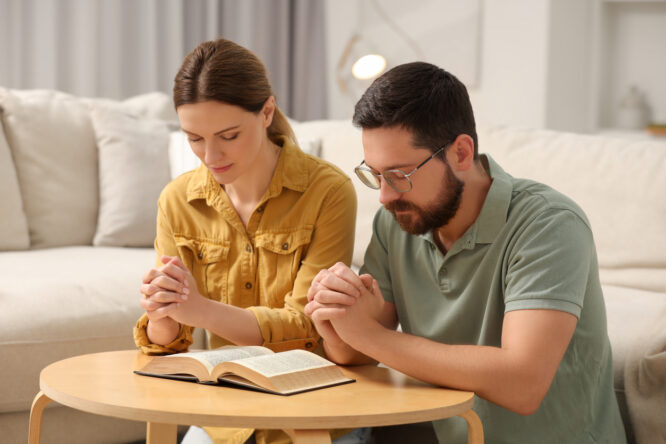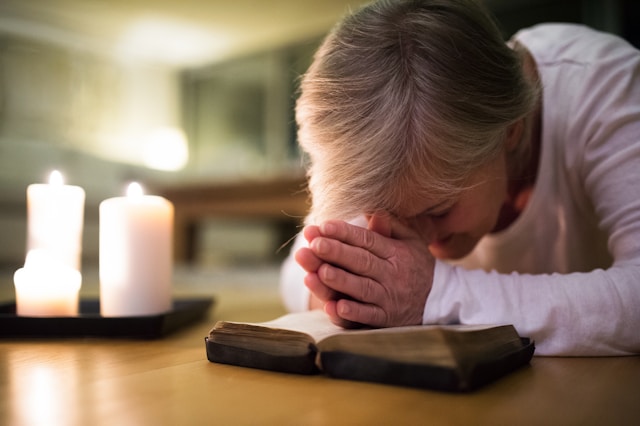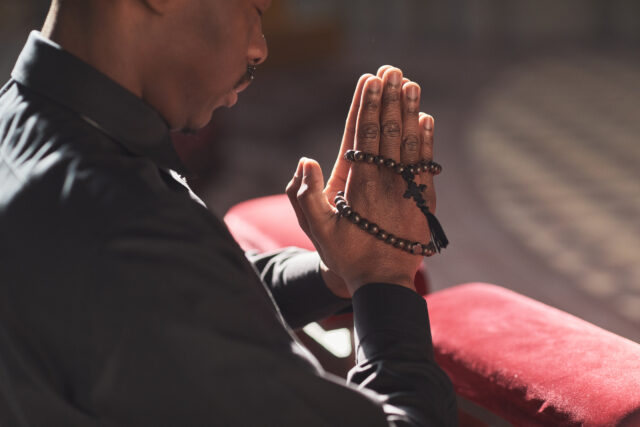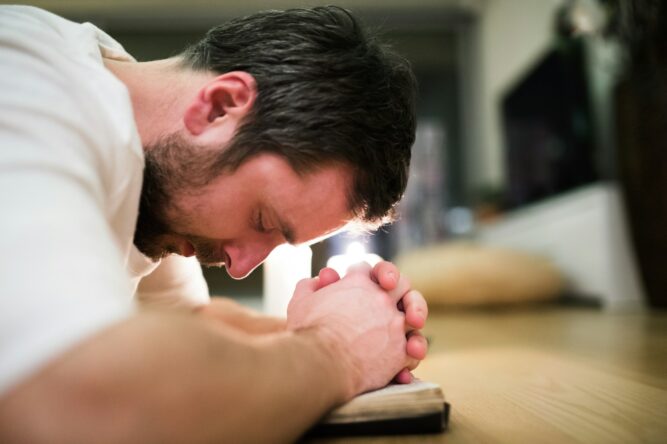There’s a big difference between a spiritual community that helps you grow and one that quietly pushes control, guilt, and fear.

The line isn’t always obvious at first, unfortunately. It might feel like something’s off, but you’re just not sure what. After a while, you might start noticing patterns that leave you feeling smaller instead of supported. If any of this sounds familiar, it could be a sign that your religious community is more focused on control than on actual spiritual connection. If any of these signs feel familiar, you’re finally naming what a lot of people feel but don’t always know how to say.
1. Questions aren’t welcomed—they’re discouraged or ignored.

If you’re made to feel wrong or disloyal just for asking honest questions, that’s a red flag. A healthy spiritual space should welcome curiosity, not shut it down or make you feel like a bad person for wanting clarity.
When questions are treated like a threat, it usually means control is being prioritised over understanding. Real growth comes through wrestling with ideas, not blindly accepting whatever you’re told. If you’re not allowed to ask, you’re not really allowed to think.
2. Doubt is treated like a failure, not a part of faith.

Struggling with belief or feeling unsure at times isn’t a flaw—it’s part of being human. But in some communities, doubt is shamed or framed as weakness, like you’re failing spiritually just by wrestling with things. That kind of response doesn’t invite you deeper into your faith. In reality, it pushes you into fear. When doubt is met with control or pressure instead of support, it’s a sign the focus might be more on compliance than connection.
3. You’re told who to avoid or cut off.

If your community pushes the idea that you can’t associate with certain people, even your own family or friends, simply because they believe differently, that’s not spiritual protection. That’s isolation. Spiritual growth isn’t about cutting people out just because they see the world differently. If you’re only allowed close to those who stay in line, it’s more about power than purpose. Love and control don’t go hand in hand.
4. Leadership is above criticism.

If the leaders in your community aren’t held accountable—or worse, if questioning them is seen as disobedient or disrespectful—that’s a dangerous setup. Spiritual leadership should come with transparency, not immunity.
When someone can’t be challenged, it usually means control has replaced humility. Healthy leaders don’t need to demand loyalty because they earn trust through honesty, openness, and accountability. If no one’s allowed to ask hard questions, something’s off.
5. Rules are more important than relationships.

When the focus is always on rules—how you dress, who you associate with, what you’re allowed to say—and not on kindness, compassion, or community, the heart of spirituality starts to disappear. There’s nothing wrong with structure, but when rules start to matter more than people, it becomes about image and power instead of connection and purpose. If love feels conditional, the message has likely been lost somewhere along the way.
6. Fear is used to keep you in line.

Messages about punishment, damnation, or spiritual failure might keep people quiet, but they don’t nurture real belief. If your community often leans on fear to keep people in check, it’s worth paying attention to what’s really going on.
Fear might keep people compliant, but it rarely leads to healthy, lasting faith. If you’re staying because you’re scared, not because you’re spiritually fed, that’s a sign the atmosphere might be more about control than actual connection to something higher.
7. You feel guilty more often than inspired.

It’s normal to feel challenged by spiritual teachings now and then, but if you constantly feel weighed down, ashamed, or not good enough, something’s off. True spirituality should lift, not crush you. If guilt is the default setting, it’s not helping you grow. It might be trying to keep you small. And when guilt becomes a regular part of the message, the focus might have shifted away from healing and into manipulation.
8. You’re discouraged from trusting your own judgement.

If you’re constantly told that your heart, thoughts, or instincts can’t be trusted—and that you always need someone else to interpret things for you—that’s a method of control, not guidance.
Spiritual growth includes learning to listen inwardly, not just outwardly. A good community encourages discernment and self-reflection. If you’re always made to feel like you can’t trust yourself, it’s probably not about helping you grow — it’s about keeping you dependent.
9. There’s pressure to hide anything that doesn’t “look good.”

If people are encouraged to present a certain image while hiding their real struggles, pain, or doubts, that’s more about performance than honesty. It’s hard to feel spiritually connected when you have to pretend to be someone you’re not. In authentic spaces, you’re allowed to be human, even when it’s messy. If everything is polished on the outside but disconnected underneath, the culture might be built more on control than truth.
10. There’s little room for joy, play, or lightness.

Spirituality isn’t meant to feel heavy all the time. If your community treats joy, fun, or rest with suspicion—or only values seriousness and sacrifice—it might be running on control more than connection. Being spiritual doesn’t mean living in constant tension. If joy feels rare or even discouraged, it might be because the system isn’t built to nurture whole people, just obedient ones.
11. Everything is framed as “us vs. them.”

If your community constantly talks about outsiders in negative terms, or insists they’re the only ones with the truth, that’s a sign of a closed system. It may feel empowering at first, but as time goes on, it creates division instead of depth. Genuine spirituality doesn’t need enemies to survive. When everything becomes about separation and superiority, it’s less about love, and more about control disguised as righteousness.
12. You feel drained or anxious after attending.
 Source: Unsplash
Source: Unsplash After spending time in a spiritual space, you should feel nourished—not small, unsettled, or emotionally wiped out. If every visit leaves you second-guessing yourself or feeling like you’re not enough, that’s not spiritual care. Sometimes your body notices before your mind does. If you’re constantly walking away from services or gatherings feeling uneasy, that might be your intuition flagging that something isn’t right.
13. You’re pressured to stay, even when it doesn’t feel right.

If you’re told that leaving the group means you’re lost, weak, or betraying something sacred, that’s not love. That’s fear dressed up as devotion. Spiritual belonging shouldn’t be a trap you can’t leave without shame. You should be able to explore, question, or step back without being cast out. If the only way to stay safe is to stay silent and stay put, that’s a structure designed to hold power, not offer support.
14. You can’t be yourself without being corrected.

If expressing your personality, style, opinions, or even humour gets you side-eyed or “gently” criticised, it might be more about fitting a mould than nurturing your spiritual life. Real connection with something bigger should include all of you, not just the version they approve of. If you’re constantly shrinking to fit in, the space probably isn’t as safe or spiritual as it claims to be.
15. You’ve changed yourself to stay accepted, but you’re still not sure you belong.

You’ve adapted. You’ve tried to do everything right. But deep down, there’s still a feeling that you’re not really seen or fully accepted. That pressure to constantly prove yourself is a huge sign of control masquerading as community. Spiritual spaces that truly feed you won’t make you feel like you’re always failing. If love feels like something you have to earn and never quite achieve, it might be time to ask who’s really benefiting from that dynamic.




